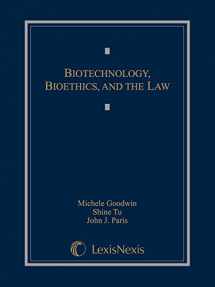
Biotechnology, Bioethics, and the Law
Book details
Summary
Description
With every new advancement in biotechnology, ethical and legal questions arise. Sometimes, those questions are easily addressed and settled. However, more often, these issues are not easily resolved and at times are left to the democratic process or markets to establish the boundaries of technological pioneering. In Biotechnology, Bioethics, and the Law, the authors canvass the broader fields, valleys, and pastures of biotechnology, providing mostly cases, but at times law review and medical journal articles to provide a comprehensive look at a given technology. Their goal is to encourage a critical engagement on the topics shared in the book, whether on cloning animals and plants for human consumption, drug regulation, or human reproduction and eugenics.
Many of the cases contained in the book provide novel questions for judges. Some of these cases are the first impression for the courts, meaning that judges are attempting to learn the law in these new areas and develop its jurisprudence at the same time that the public ― or the reader ― are doing the same. As students read the cases, they are asked to consider whether they would reach the same conclusions as the courts. Are these issues better left to legislatures? Are markets the best forum for efficiently resolving biotechnological conundrums?


We would LOVE it if you could help us and other readers by reviewing the book
Book review



